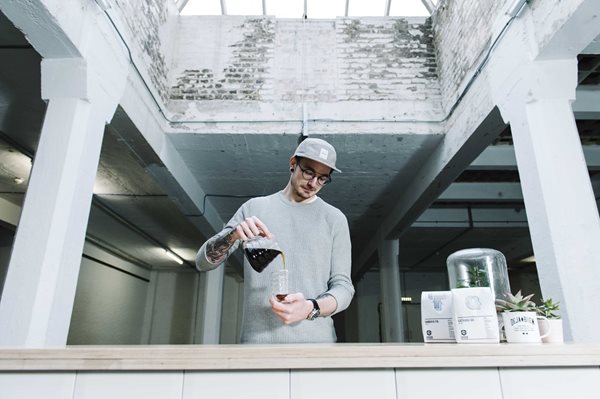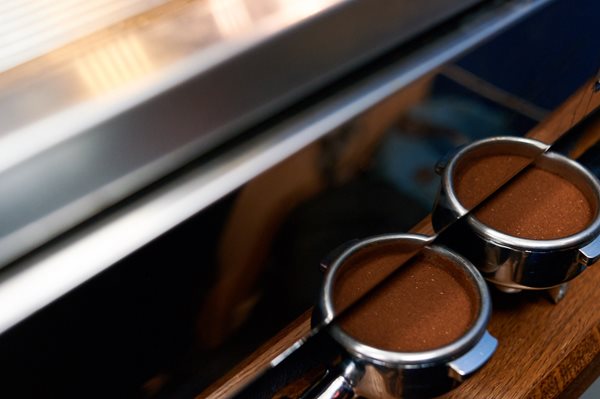Wherever you are on your coffee journey, there's always more to discover. Even for James Wise, the 2017 Coffee Masters - London champion who is based at Assembly Coffee Roasters in Brixton, London.
We dropped by a cupping (translation: coffee tasting) to find out what it's all about.
Stepping into Assembly Coffee is like entering a lab, but in the place of white coats there are baseball caps, and instead of white surfaces, it’s all light, Scandinavian-style wood. Farming, roasting and tasting coffee is a fine art form, which is made clear by the accoutrements; Le Nez du Cafe, a wooden box containing 36 different aromas, and the tin box of organic acids sitting in a room with a small samples roaster. There’s enough coffee around to make any aficionado melt (at least 20 were on offer during the cupping session) and this is the perfect place to taste it. But, according to James Wise, Business Development Manager at Assembly Coffee and Coffee Master - London 2017, it’s time to rethink how we learn about coffee, starting with the sensory experience.
Let’s rewrite the manual. Here’s how to taste coffee according to The Master.

1/ Sensory first
Cupping isn’t done enough at the start of people’s coffee education. I trained differently to most people, which is perhaps testimony to my success. All too often, people are trained in how to make coffee first, and the sensory and theoretical part comes after, or is optional. In my view, it should be sensory first, then theory, then production. That changes the way you think about coffee.
2/ Understand flavour
To understand coffee, you’ve got to get to grips with flavour itself first. When I came into coffee I was trained using acid solutions and sugar solutions, less intense to most intense, because those are the base components of flavour. I then started tasting everything that way. If I can find something that relates to those basic components - for example, I now know that an apple has the same characteristics as malic acid - then I can build a flavour pathway. Taste is all about reference points, so practise trying the different elements on their own - like fruits - and build your own collection of references. Taste in depth across the board with whatever you eat and drink, not just coffee.
3/ Trust your instinct
People are very self-conscious as to whether they are tasting correctly, but there is no real way of tasting. At Assembly Coffee, we got rid of all the tasting notes on our coffee bags, because they were more alienating than anything else. Many people can’t taste the exact flavours that are suggested, so removing them has worked very well. Too many people care about getting it ‘wrong,’ when it’s actually completely open to debate. Coffees will taste differently to everyone, which is why we do our cuppings in such big groups.

4/ Learn what you enjoy
I love rare and unusual coffees, but they aren’t always the coffees you want to drink every day. A classic example is the Panama Geisha, which sells for a high price and scores incredibly high in quality. People want to try them and the tasting notes are often floral and very complex. It’s interesting, but it’s ok to not want to drink it every day. On the other hand, a natural Ethiopian Yirgacheffe tastes of chocolates and caramels - which are things I enjoy eating. It’s sweet, it’s rich, it’s fruity; it might not score as high as Panama Geisha, but knowing what you enjoy is important.
5/ Seek objectivity
If you want to get serious, go to cuppings. There, the whole idea is that everything is absolutely repeatable. A lot can fluctuate during the brewing time and each coffee reacts differently. We often taste up to 60 coffees, so we roast them the same way, and use the same water. It’s important to know that the visual experience is also very affective; colour sways your opinion subconsciously, so we use opaque bowls. The less information you know about the coffee the better. For example, if you know it’s by a roaster that you enjoy, or you know too much about where it’s from, you can’t be objective. Try to withhold as much information from yourself as possible; all you need to know is how it was processed and the region it was from. Then you can rely on the taste alone.